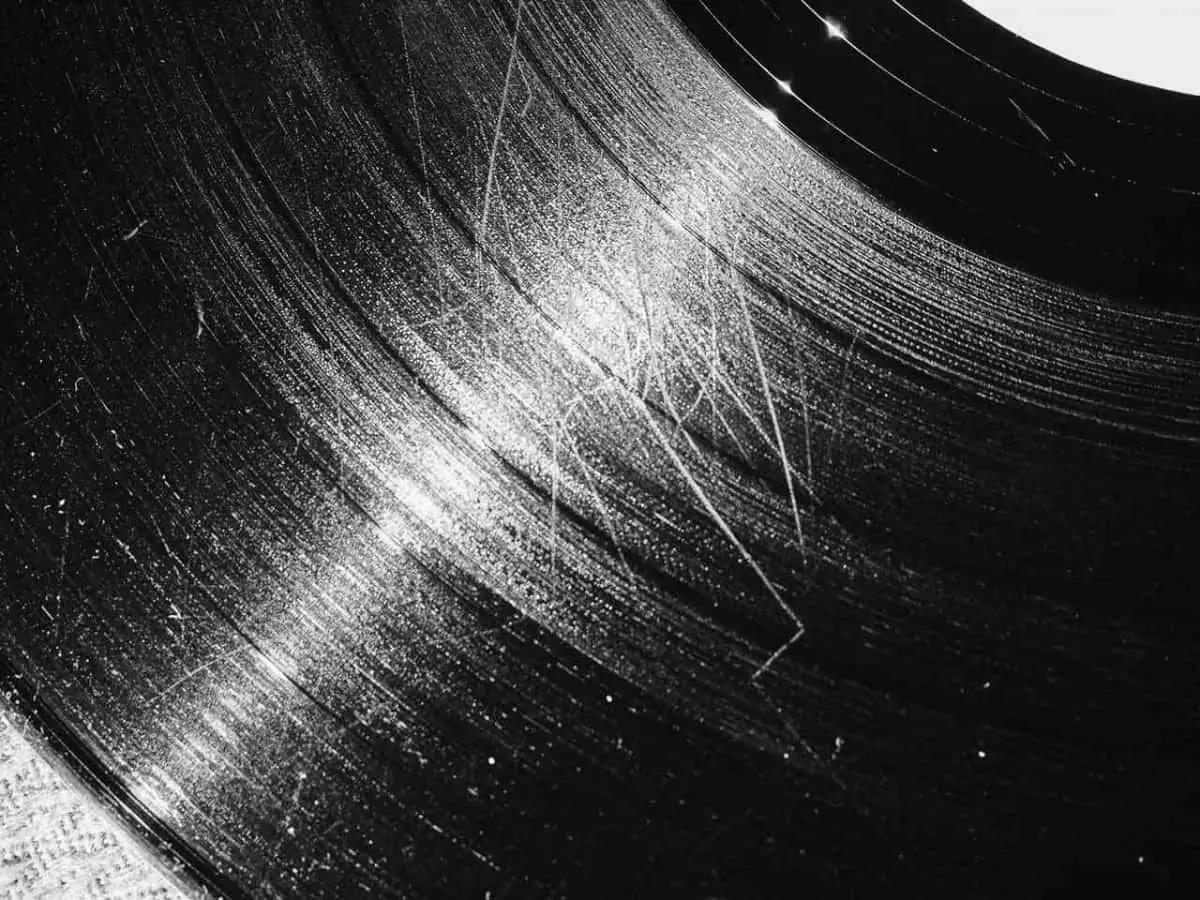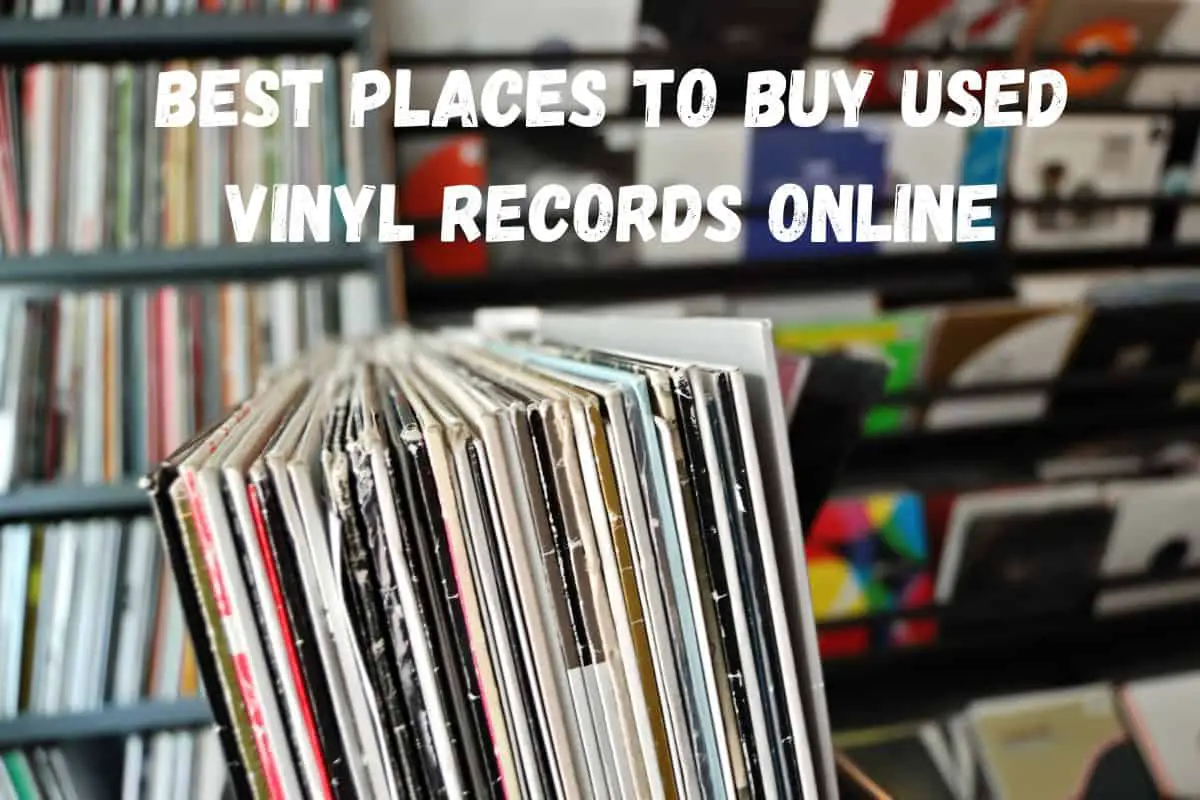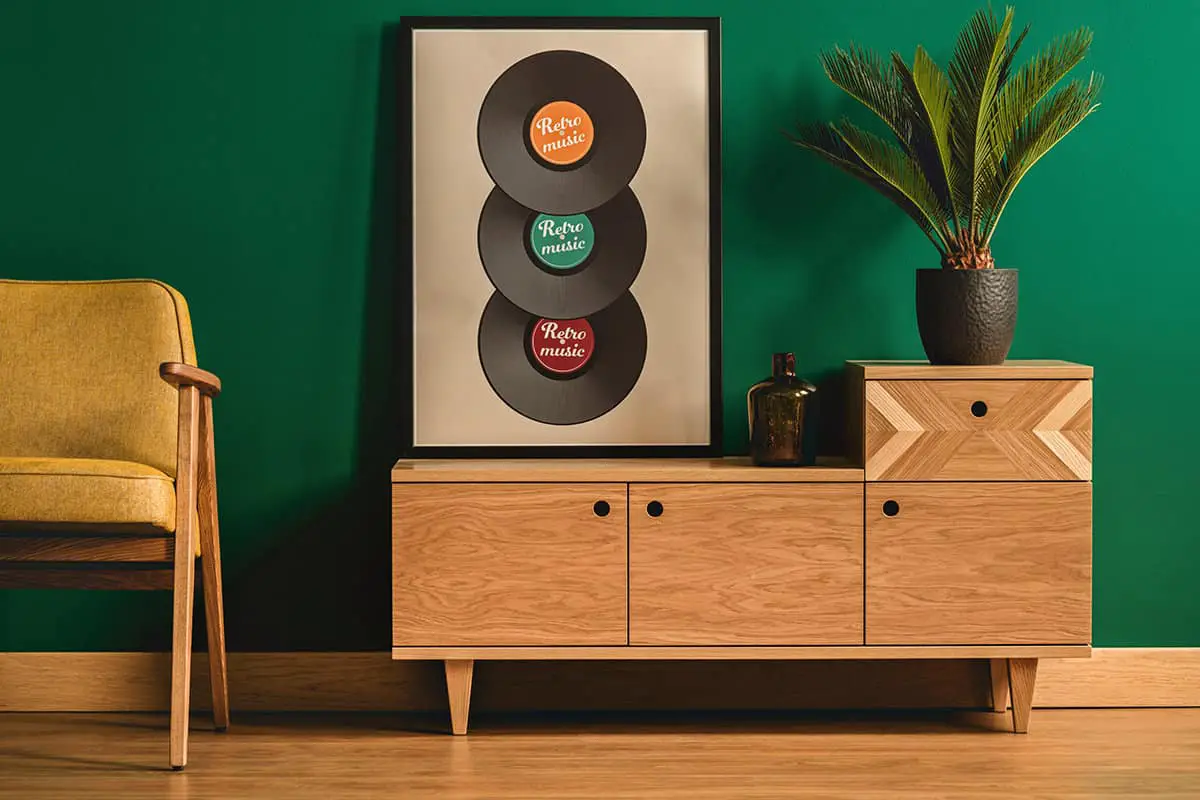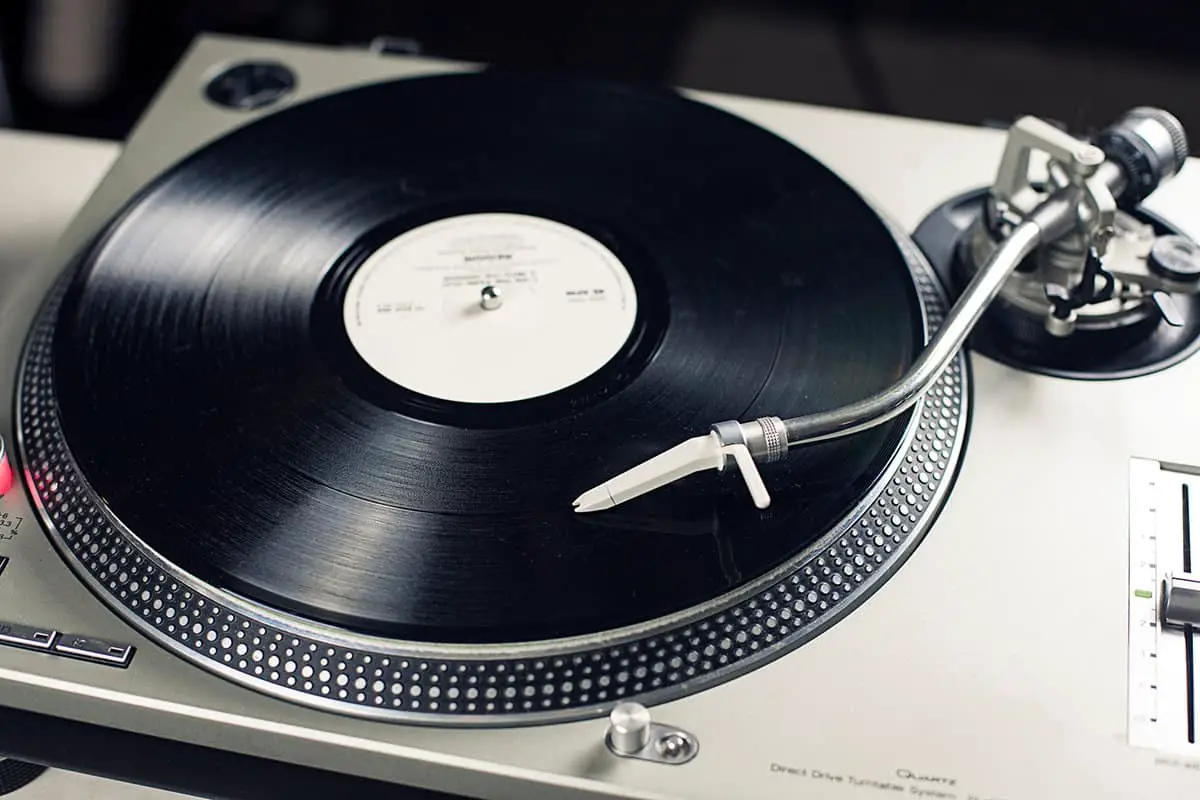This post contains affiliate links.
Are your vinyl records damaged goods, or are scratched records able to play? A scrape on your thousand-dollar phone, a scuff on your brand new car, an abrasion on your prescription glasses, scratches mean damage, and no one wants damaged goods. It may be tempting to think about the scratches on your vinyl records, and for that, I do not blame you.
Just like how a minor groove on your phone screen does not render your phone useless, a small scratch should not be a problem, therefore a scratched record should be able to play. However, it is crucial to know that the damage will determine if your vinyl is playable or not.
Is my scratched vinyl record playable or not, or can I at least mitigate the damage? In this article, we will answer these questions through and through, so sit back and relax.
Table of Contents
The Scratches And Vinyl
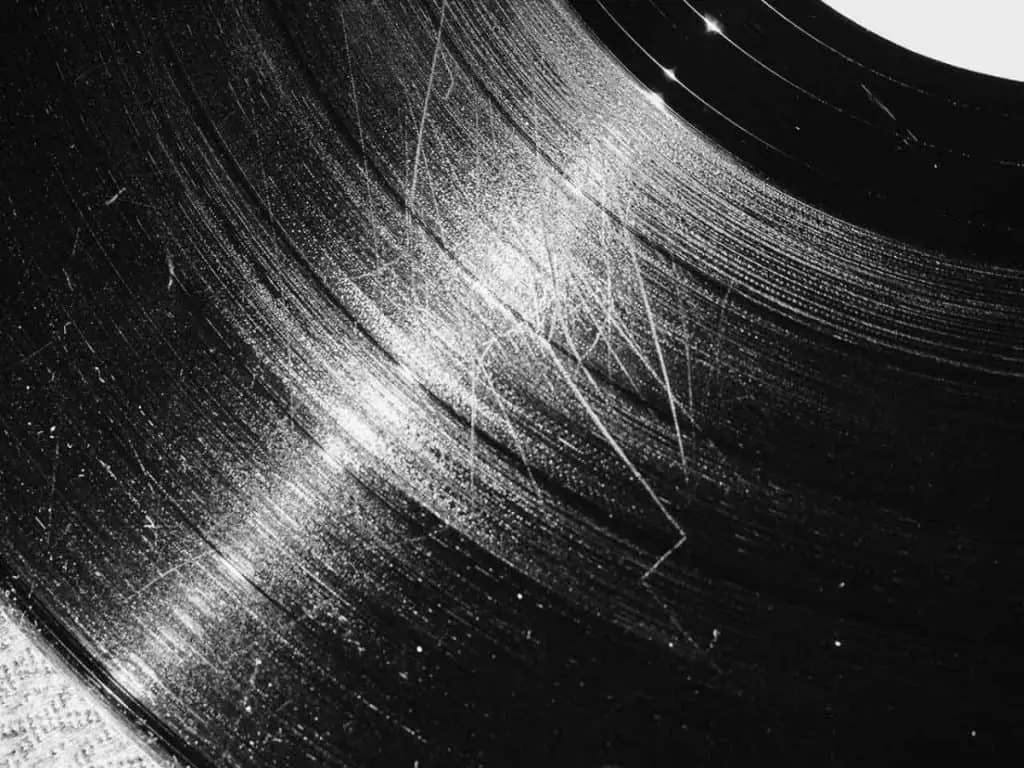
Are scratched records able to play? Before we directly tackle that query, we must first understand the role of “scratches” in vinyl records.
It is simply incomprehensible how we can manage to bring albums and more albums of songs within the palm of our very hands. And to think how we do not even ponder about this fantastic technology and take it for granted! However, there was a time when we needed to carry compact disks, clunky cassettes, or even vinyl to play quality music.
Even with cassette tapes and most compact disks going obsolete, vinyl records are still alive and well! Who would have known that such a “relic” is still one of the best ways to listen to music to date! However, boy, are they susceptible to physical damage!
Vinyl records have a “love and hate” relationship with scratches. First of all, the very existence of vinyl records comes from its precise architecture of scratches, known as its grooves.
These grooves form an intricate pattern that collectively is read as sound signals by the needle of your vinyl record player and converted into the music that you hear. Quite the beautiful journey, isn’t it? (1)
From the humble origins of being a boring groove to its stunning end as an Obra Maestra musical piece, it is quite a wonder. However, despite the scratches known as “grooves” creating such beauty, scratches themselves can also ruin it. Improper handling, falling, improper storage, and more situations can result in vinyl scratching.
Some would say, “Who cares? Aren’t vinyl records made out of grooves in the first place? Do scratches even matter?” Well, yes, it does matter.
Because vinyl records are so reliant on the specific structure of the grooves, they are highly susceptible to mutilation due to even slight changes in the physical form of the grooves. These “physical changes” can manifest as bending, but it often presents itself in the form of scratches.
Are Scratched Records Able To Play?
As we have established already, vinyl records are vulnerable to scratches or even just minor changes to their physical structure. However, does a simple scratch spell death, or do they inhibit unnoticeable audio artifacts? Are scratched records able to play?
Scratches Are A Big Deal
We will use the compact disk as a potential viewpoint to answer this question in a more relatable light. Despite the two’s vast differences, the compact disk and vinyl records hold many similarities. For example, both are in the shape of a disk, save data, and were also used as mediums to store audible information.
We all know too well that compact disks scratch very quickly, even swifter than a vinyl record. It is not too common to see a used, unscratched compact disk. However, they still retain their data and are still very usable.
Just like that, a vinyl record can still hold its integrity even when scratched. Especially when the scratches are minor scuffs, vinyl records will mostly retain their listenability. However, like how a scratched compact disk will have odd skips and pauses, a vinyl record will undoubtedly have audible artifacts.
Since vinyl records are analog technologies and not like the compact disk, the scratch will not only manifest itself as minor skips and pauses, but it can even cause your vinyl record to jump and skip whole tracks! Even with the most minute of scratches, do not expect uninterrupted listening. (2)
Are scratched records able to play? Perhaps, that may be the case—however, any scratch, big or small, will have impacts on your vinyl record. The only thing you can do is hope.
After all, a big scratch aligning with the grooves will not have as much damage compared to a scratch running directly across multiple rows of the vinyl record’s tracks. Like a train with a broken rail, it would not be playing smoothly.
Some Will Still Play; However, There May Be Skipping Involved
Alright, you have dropped your vinyl record, succumbing the record to scratches. “Certainly, there will be no audible damages, right?” You said to yourself wistfully.
You pop your vinyl record player open, hope for the best, and find track one playing well. Track two, track three, and track five seem to be playing well also. However, where did track four go?
Your worst nightmares are confirmed, and it looks like there are damages to your vinyl record. Why is this a thing, and how does this happen? Well, let us talk about that, shall we?
I know you are tired of hearing this concept. Still, I must repeatedly assert that the physical architecture and structure of the vinyl record will heavily impact its integrity. Having unnecessary scratches or scuffs will result in audible damage.
Are scratched records able to play? Well, it depends on the severity of the scratch. However, as said earlier, mutilations and distortions are expected even with the slightest and shallowest scratches.
The needle on your vinyl record player’s cartridge follows the structures, i.e., the grooves on your vinyl records. When there are scratches on your vinyl record, instead of following the predetermined path that will play each section of the record in an orderly manner, the scratch will create an additional pathway for the needle to go through.
When this happens, instead of transitioning from track three to track four, the tonearm’s needle passes through a shortcut and skips to track five directly.
Scratches Do Not Mean Bad Blood With Your Needle
Certain things may make your heart burst into action: your smartphone dropping,- or that loud popping you hear when your needle hits a scratch. We all know that needles are very expensive and that popping sound from the vinyl record’s scratch may be the end of it.
Hold your horses first, amigo, as that is certainly not the story. If you do not know, most needles placed on your turntables contain diamond or sapphire, both very durable metals that do not break with just a scratch. Vinyl is a much less durable material than diamond or sapphire, so you shouldn’t be worrying too much about that. (3)
However, it would be best not to forget that even diamonds and sapphires suffer from casual wear and tear. Keep them safe and handled well!
Frequently Asked Questions
How Do Vinyl Records Get Scratches?
Vinyl records get scratched due to mishandling, stacking, dropping, improper storage, and even dust and sand.
How Do I Keep My Vinyl Records Pristine And Scratch-Free?
To keep your vinyl records scratch-free, make sure always to have a clean, well-maintained, designated storage area for them. Additionally, do not touch the grooves. It may be tempting, but handling them with your bare hands may cause scratches.
Are Scratches Permanent?
Scratches are permanent, and there are no foolproof ways to repair them. Make sure to handle them properly always.
Sources
- https://www.vinylrecordlife.com/how-vinyl-records-get-scratched-and-how-to-avoid-it/
- https://retroonly.com/do-scratched-records-still-play/
- https://toprecordplayers.com/does-playing-scratched-records-damage-the-needle/
VacationVinyl.com is a participant in the Amazon Services LLC Associates Program, an affiliate advertising program designed to provide a means for sites to earn advertising fees by advertising and linking to Amazon.com. We also participate in other affiliate programs which compensate us for referring traffic.

